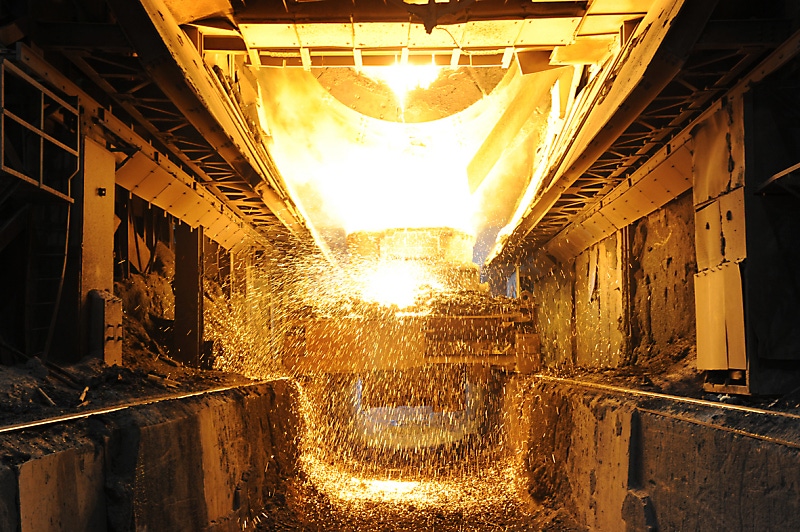Canadian Experts Respond to U.S.-Canada Duty DustupCanadian Experts Respond to U.S.-Canada Duty Dustup
Associate Prof. Krzysztof J. Pelc of McGill University in Montréal predicts cooler heads might prevail, with the duties being dropped, clearing the way for further NAFTA talks.

OTTAWA – The U.S. and Canadian automotive industries will be counting the cost of new tariffs being imposed on steel and aluminum traded between their countries, following the recent decision by the Trump Admin. to start collecting 25% on Canadian steel and 10% on aluminum.
The move sparked an immediate and angry response from the Canadian government, which said it planned to impose 25% duties on U.S. steel and 10% on American aluminum from July 1.
The range of steel and aluminum products targeted by both governments include a large number used by auto assemblers and parts manufacturers, which will force companies in the tightly integrated U.S.-Canada automotive supply chain to reassess their metal sourcing.
Peter Warrian, a senior researcher at the University of Toronto’s Munk School of Global Affairs and a senior expert on the U.S.-Canada steel trade, says about 22% of steel production is dedicated to automotive.
In his view, auto and parts makers on both sides of the border might well start looking for import substitution for softer steel inputs – such as 580C tempered grades – which already are made in sufficient volumes by both the U.S. and Canadian steel sectors.
However, harder, more tempered 850C grades of steel, made in smaller volumes and for more specialized uses, might be harder to source and – at least in the short term – auto and parts manufacturers might have to swallow a duty to ensure security of supply.
Certainly, major automotive-sector steel suppliers such as ArcelorMittal Dofasco, in Hamilton, ON, just three hours’ drive from Detroit, will have to consider their options – which can include shipping to Europe, given their home city has a major ocean-linked port on Lake Ontario.
One particular problem for all participants in the Ontario-Michigan automotive supply chain is that the prospects for the two countries’ auto sectors to prosper from a successful conclusion of NAFTA renewal talks have taken a heavy blow from this trade dispute.
“I think a successful NAFTA agreement is now a long shot,” says University of British Columbia Prof. Kurt Huebner. “The fact that this (imposition of tariffs) is also against the European Union means (Trump) has opened up all these fights in all directions with a relatively weak argument.”
Indeed, Trump’s justification of the U.S. duties on national-security grounds has created barely concealed fury in the Canadian government, with Prime Minister Justin Trudeau telling journalists May 31 that he rejected the justification as spurious: “Let me be clear – for the past 150 years, Canada has been the United States’ most steadfast ally.”
Canada, Mexico and the EU were exempted when the steel and aluminum import duties first were imposed in March, but those exemptions expired May 31. Both countries and the EU have filed complaints with the World Trade Organization and have announced plans to impose retaliatory tariffs on U.S. products.
Trudeau gave details of the breakdown in the NAFTA talks that he claimed had been making progress. He said earlier in May he had called the White House and offered to visit Washington to seal a deal. But he received a call May 29 from Vice President Mike Pence saying Trump would talk only if the Canadian government agreed that any new NAFTA deal should have a 5-year sunset clause, which Trudeau turned down flat.
Huebner says the new row would “slow negotiations and make it much more difficult.” And with a deal now impossible before the July 1 Mexican presidential elections, the likely victory of left-wing populist candidate Andrés Manuel López Obrador will complicate NAFTA negotiations still further, given his opposition to free trade, Huebner predicts.
“People who are close to the negotiations thought they were at a point of one final push (in mid-May), but it did not come together,” Warrian says. “There is a sinking pessimism among people that agreement is slipping away.”
However, Associate Prof. Krzysztof J. Pelc of McGill University in Montréal predicts cooler heads might prevail, with the duties being dropped, clearing the way for further NAFTA talks: “My bet is still that given the competitive (U.S. congressional) midterm elections, the political costs of the tariffs and subsequent retaliation will be too high for the Trump Administration. They will either pull out at the last minute or take some symbolic concessions a few days later and backtrack then.”
Would Trump now pull out of NAFTA? Pelc notes: “Impossible to say, but the talk of pulling out has abated. If anything, (the new) tariffs were justified by the talks not going fast enough.” Even if the president did withdraw the U.S. from the deal, its provisions are written into federal legislation, and so he would need congressional approval to roll back many of the rights afforded to Canada and Mexico, and that would require more Trump-supporting candidates to win at the U.S. midterm elections than is currently projected.
Canadian duty list: https://www.fin.gc.ca/activty/consult/cacsap-cmpcaa-eng.asp
About the Author
You May Also Like

